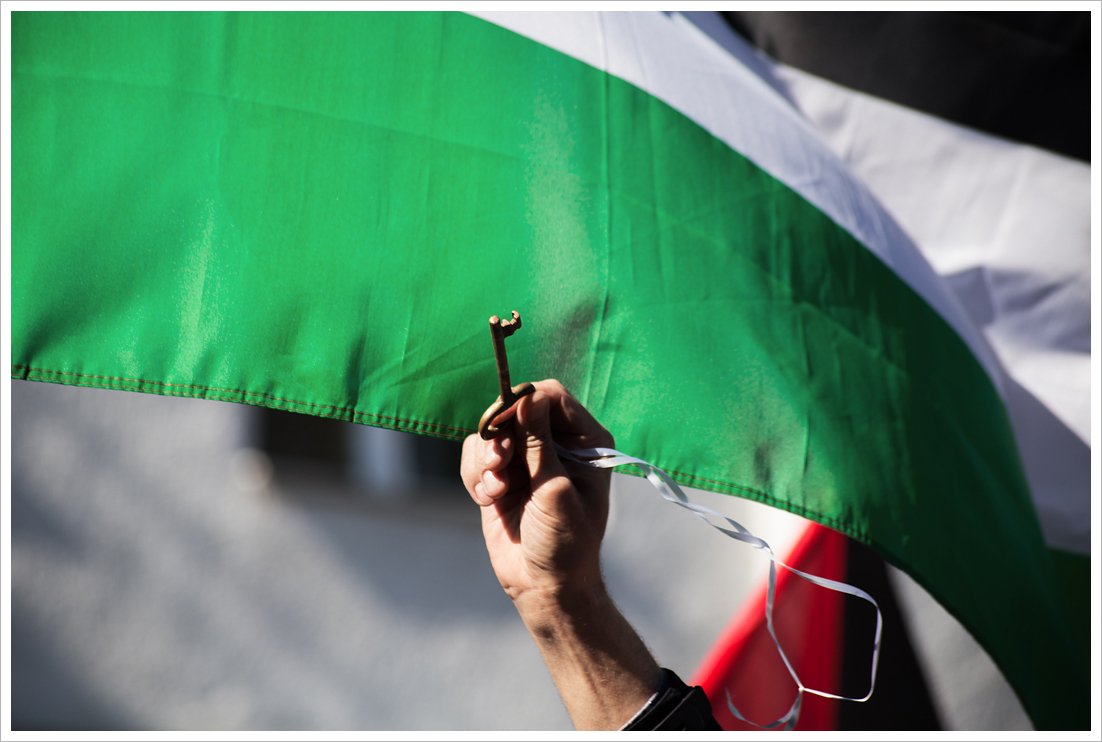Mapping a Future for Palestine: Occupied State or a State of Mind?
Image Courtesy: Montecruz Foto via Flickr
State of mind transcends physical state. This is the idea expressed by Helga Tawil-Souri, a scholar of Palestinian descent based at New York University, that transformed my understanding of Palestine. I scribbled this sentence down amongst eager students and academics, clinging onto every word she uttered. Alongside other scholars discussing media in Gaza and an alternative Palestinian world, her voice caught as she admitted that Palestine must now exist as a state of mind; an occupied state can no longer sustain the vitality of Palestinian identity. When forced to be a diasporic nation, coherence can be found in shared minds, memories, and visions for a better future.
While an intangible nation is no alternative for a physical one, the concept carries power as well. Palestine’s occupation is a reality created by the excessive force of Israel. It is not a reality that any human would choose in this world or any other existence. The strength of the Palestinian diasporic identity is beautiful and harrowing, bearing the scars of the 1948 Al Nakba and years of previous and successive occupation. However, if Palestine is to be supported and celebrated today, we must adjust our methods to accommodate the situation that they now face. This is not a concession to Israel’s genocidal agenda but a consideration of how Palestine’s geographic identity is shaped when confronted with the absence of physical borders.
Palestine occupies a liminal space that is both expansive and marginalised. More than half of Palestinians currently live outside of the state. Prior to the exodus of 750,000 Palestinians from the newly formed State of Israel in 1948, Arabs were occupied in their own land. The 1916 Sykes-Picot agreement and British Mandate subjected Palestine to hostile colonial interests, exacerbating tensions between Jews and Arabs that had previously lain dormant. Prior to the importing of colonial Zionism from Europe, the region lived in a delicate yet sustainable equilibrium. The carving up of the Ottoman Empire, and imposition of distinct borders, problematised the amorphous nature of Palestinian identity. This is a story of imperialism and imported ideologies rather than inherent antagonisms between Jews and Arabs. If we continue to define Palestine through a rhetoric of borders and occupation, we also continue a tradition propagated by empire which arbitrarily allocates territory and statehood.
Whilst Palestinian territory has been changed, occupied, and violated, Palestinian identity has not ceased to exist. The equation of points on a map with national existence is blinkered. Furthermore, to approach Palestine through a rubric of perpetual conflict is to minimise its diverse history independent of Israel. And to present Palestine as simply fighting a neighbouring aggressor is to wrongly suggest that this has always been a conflict of equals rather than an issue of Israel’s neo-colonial agenda.
What matters is how we acknowledge and protect the sentiment of belonging. How we continuously demand the existence of Palestine in the face of Israel’s efforts to erase it.
This is where Tawil-Souri’s words stick. Her idea that the vitality of Palestine now exists stronger in the mind than on the ground is resonant because territory is transient. A visit to Palestine Open Maps will show Israel’s systematic removal of Palestinian villages and towns from 1870 to present day. We can no longer view land as evidence of national identity or existence. If we distil existence down to borders, and the hands of those who draw them up, we distil it down to changing colonial agendas. You need only look at Israel’s oscillating loyalty towards the Palestinian Authority and Hamas to see how fickle such interests are. Colonial interests and imported ideologies are not specific to borders, but to hegemony.
So, what does this mean for us and our solidarity with Palestine? We must acknowledge its forced diasporic existence. Whilst this can be attributed to foreign intervention and aggression, we should refrain from defining Palestine by what said foreign powers have done to it. In order to restore agency to a people facing erasure by Israel, we must learn about their personal history, culture and self-identification. We can locate a Palestine around us. We must detach Palestine from a constant state of conflict and see where it is experiencing peace. This is not a repudiation of the ongoing humanitarian crisis in Gaza and the West Bank, but a proposal to support Palestine in its most vibrant form which may now be a communal state of mind.
Palestine should not permanently exist in the peripheral vision of Israel. It should exist in the histories and experiences of Palestinians across the world.

